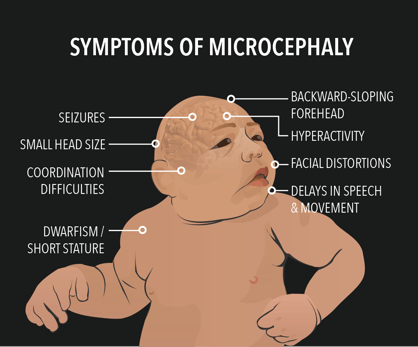Tags: Stem Cells, heart disease, Duke University, University of Wisconsin Madison, Alabama, UAB, AL, Southern Region, University of Alabama at Birmingham, bioengineering

(1886 Sketch of Person with Parkinson's by Sir William Richard Gowers Courtesy of Wikimedia Commons)
Researchers at the University of Alabama, Birmingham have discovered a potential new approach to reducing the damage done by Parkinson's disease. They found that suppressing a key cell-signaling pathway in the brain lessened the destructive inflammation and nerve degradation in the area of the brain affected by Parkinson’s. In the study, rats were used to model the disease by inducing an overexpression of a-synuclein, a protein that is abundant in the human brain. The accumulation of α-synuclein is a core feature of Parkinson’s disease. This accumulation leads to the activation of the brain's immune cells and the production of inflammatory signaling chemicals, which leads to neurodegradation. The rats that were then given a JAK/STAT pathway inhibitors (known as Jakinibs) did not have the immune response, the inflammatory activation, or the neurodegeneration that those that did not receive the inhibitor experienced.
Read MoreTags: Parkinson's Disease Research, Alabama, University of Alabama, University of Alabama Birmingham, UAlab, Birmingham, AL, University of Alabama at Birmingham, 2016, Parkinson's Disease

Microcephaly has been linked to the Zika virus
(Photo courtesy of of wikimedia commons)
With Zika outbreaks in Mexico, Central America, and South America, the National Institute of Child Health and Human Development (NICHD) is attempting to stop the virus at our border. To assist with this effort, the institute is funding a study led by Dr. William Britt, Professor of Pediatric Infectious Diseases at the University of Alabama at Birmingham (UAB). This study will take place in Brazil, where the World Health Organization (WHO) estimates that between 500,000 and 1.5 million people have been infected by Zika. The study will follow pregnant women in Brazil regardless of their Zika virus infection status and follow the infants suspected of having Zika from birth until 2 years of age.
Read MoreTags: Bioresearch, University of Alabama, South, University of Alabama Birmingham, UAlab, UAB, Birmingham, AL, BioResearch Product Faire, microcephaly, zika, Dr. Britt
 Tuberculosis is a terrible disease that is characterized by a bad, sometimes bloody cough, and which could lead to other serious health problems, or even death.
Tuberculosis is a terrible disease that is characterized by a bad, sometimes bloody cough, and which could lead to other serious health problems, or even death.
Over 1.5 million people currently die from TB each year, and as many as one third of the world’s population is currently infected, according to the Centers for Disease Control and Prevention.
In an effort to combat this worldwide health concern, Michael Niederweis, Ph.D., and colleagues from the University of Alabama at Birmingham have made an important discovery. The scientists recently uncovered an important toxin called Tuberculosis Necrotizing Toxin (TNT) that resides within the pathogenic bacterium Mycobacterium tuberculosis and aids in survival and proliferation.
Read MoreTags: tuberculosis, Immunology, Alabama, Biology, 2015, disease research, life science research, UAlab, Birmingham, AL, Southern Region, University of Alabama at Birmingham, BioResearch Product Faire™
Human papillomavirus (HPV) is the most common sexually transmitted infection in the world. Nearly all cases of cervical cancer are believed to be caused by HPV infection, which cause more than 270,000 deaths annually. Of the more than 85% are in developing countries.
Tags: 2014, University of Alabama, BioResearch Product Faire Event, UAlab, Birmingham, AL
Researchers at the University of Alabama recently received $8.1 million in life science funding from the National Institutes of Health for a study involving the etiology of geographic and racial differences in stroke. The life science grant was awarded in January of 2014 by the National Institute of Neurological Disorders and Stroke, a branch within the National Institutes of Health.
Tags: 2014, new research funding, Alabama, University of Alabama, University of Alabama Birmingham, BioResearch Product Faire Event, UAlab, Birmingham, AL, new grant
The University of Alabama, Birmingham recently renewed its translational research facility, the Comprehensive Cancer Center/ Wallace Tumor Institute, which is home to a number of state-of-the art research laboratories for leading cancer diagnostic and treatment research in Alabama.
Tags: 2014, University of Alabama, BioResearch Product Faire Event, UAlab, Birmingham, AL
Living 17 years in a Dadaab refugee camp after fleeing Somalia, Africa, Hussein Issak Magale with his family came to the United States with a resettlement opportunity in 2009. After starting off at the University of Arizona in April 2010, Magale has worked in the Orthopaedic Research Lab and participated in an international research program in Kenya, Africa, which is funded by the National Institutes of Health and administrated by the University of Alabama. He will graduate in this May 2014 with a Bachelor of Science in Molecular and Cellular Biology.
Tags: 2014, University of Alabama, BioResearch Product Faire Event, UAlab, Birmingham, AL
The University of Alabama at Birmingham recently received a $4.6 million life science research funding grant from the NIH for the school’s Center for Clinical and Translational Science. Dr. Robert Kimberly is listed as the project leader. According to the University of Alabama, Dr. Kimberly is Senior Associate Dean for Research and Director of the University of Alabama at Birmingham Arthritis and Musculoskeletal Center (AMC). He is also a rheumatologist and immunologist whose research interests include autoimmune disease, systemic lupus erythematosus, systemic vasculitis and rheumatoid arthritis. The NIH RePORTER provides more information on the center receiving the latest $4.6 million in life science funding.
Tags: 2014, 2013, University of Alabama, Southern, BioResearch Product Faire Event, UAlab, Birmingham, AL, NIH funding, NIH grant, NIH award
Researchers at the University of Alabama at Birmingham, led by Donald Buchsbaum, PhD, received a $2.2 million grant from the NIH this year to study pancreatic cancer. According to the University of Alabama website, Dr. Buchsbaum is quoted as saying of his research goals: "My interests are focused on the use of monoclonal antibodies that bind to the tumor necrosis factor-related apoptosis-inducing ligand (TRAIL) receptors for cancer therapy in combination with chemotherapy agents and radiation.” Dr. Buchsbaum and his research team began receiving funding for their studies of pancreatic cancer six years ago, though funding was limited at that time. The NIH RePORTER sheds light on the project that has received $2.2 million from the NIH this year in the proposal’s abstract:
Tags: 2014, 2013, Alabama, University of Alabama, Southern, BioResearch Product Faire Event, UAlab, Birmingham, AL, NIH funding, NIH grant, NIH award, University of Alabama at Birmingham

